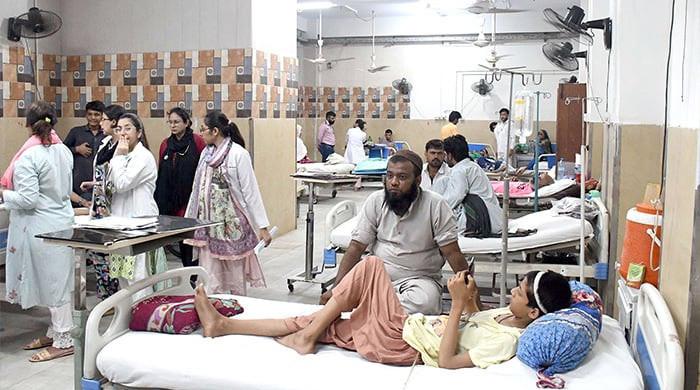- Muhammad Ameen returned from Middle Eastern country.
- Patient has been discharged after being recovered, says MS.
- Dr Tahir says 55-year-old tested negative for MERS-CoV.
RAWALPINDI: The patient, who allegedly contracted Middle East Respiratory Syndrome-Coronavirus (MERS-CoV) in Rawalpindi, was in fact suffering from a viral infection, Benazir Bhutto Hospital (BBH) Medical Superintendent Dr Tahir Rizvi said on Saturday.
The resident of Kharian, Muhammad Ameen, had returned from a Middle Eastern country a month ago.
MERS-CoV — not to be confused with COVID-19, commonly known as the coronavirus, pandemic — is a viral respiratory illness first identified in 2012, and has been reported in 27 countries.
BBH MS Dr Rizvi said MERS-CoV was not detected in the patient.
“The patient has been discharged after his recovery and testing negative for MERS-CoV,” the official said.
Following suspicion of Ameen’s contracting MERS-CoV, at least 40 members of his family were tested for the virus.
The 55-year-old was transferred to BBH in Rawalpindi on September 5, where he remained in the Intensive Care Unit (ICU) for several days. He was kept in isolation.
The MERS-CoV disease has a mortality rate of around 36%, although this figure may be inflated due to the underreporting of mild, undetected cases.
Symptoms of MERS-CoV include fever, cough, and difficulty breathing, with some patients developing severe respiratory distress. The mortality rate is particularly high among those with underlying health conditions, such as diabetes or chronic lung disease.
The infection is usually diagnosed through laboratory testing of respiratory specimens, but early detection remains challenging due to the nonspecific nature of its initial symptoms, which often resemble those of other respiratory illnesses.
Human-to-human transmission has been linked to delays in recognising symptoms and implementing isolation measures, highlighting the critical need for early detection and swift responses to potential cases.
As the world continues to battle respiratory infections, including COVID-19, maintaining awareness of MERS-CoV remains crucial. Public health education, hygiene practices, and responsible interactions with camels are key to preventing the spread of this dangerous virus.

